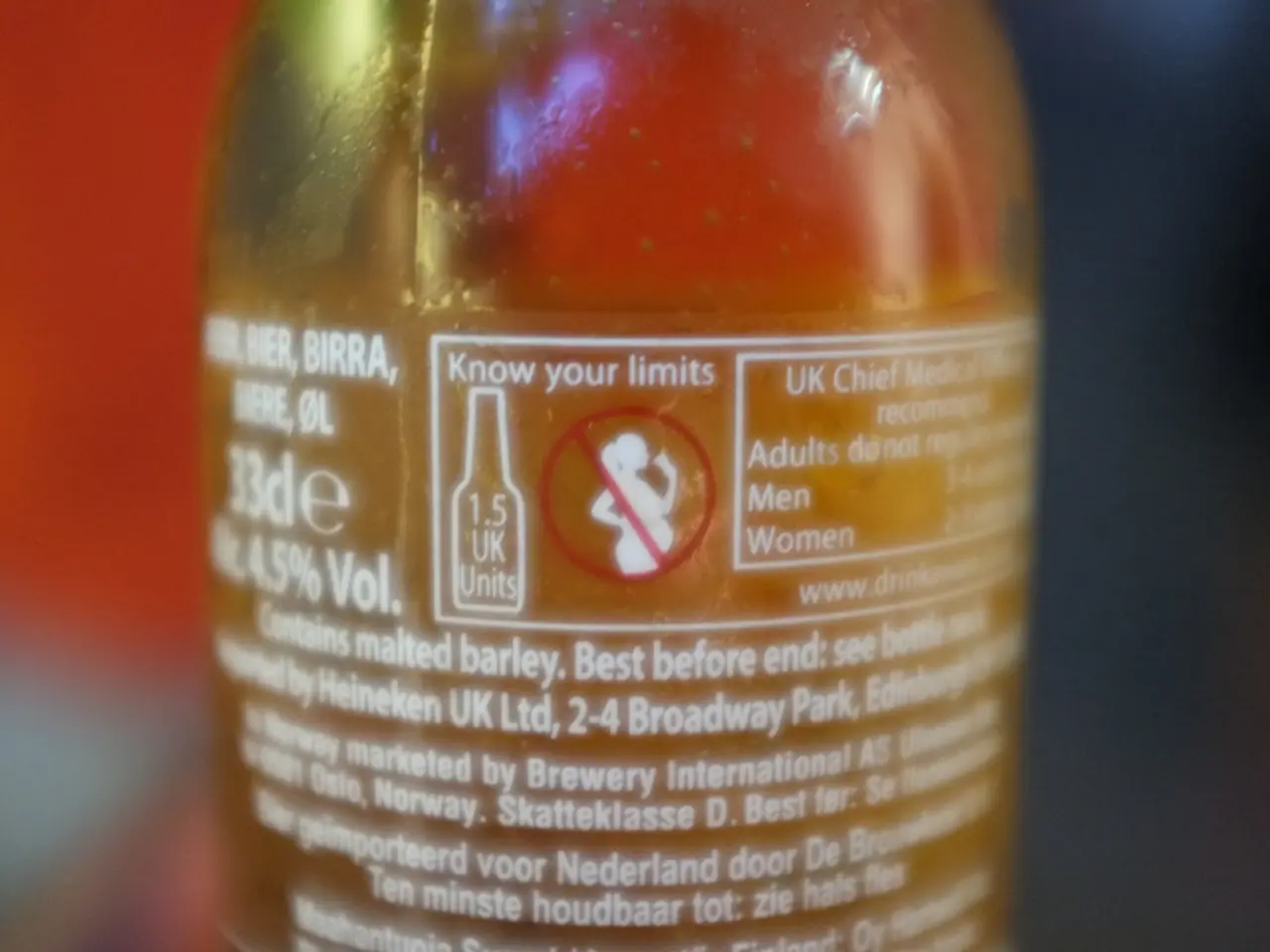Warnings circulating on TikTok regarding the herbal remedy 'Feel Free'
In the vibrant city of Austin, Texas, a confrontation between Misha Brown, a 37-year-old man, and a teenage boy took an unexpected turn when the boy asked Brown to buy the herbal drink "Feel Free." Little did Brown know, this seemingly innocuous request would lead to a series of events that have raised concerns about the safety and potential addictive properties of this popular beverage.
Feel Free, marketed for offering "relaxation, productivity, and focus," contains kratom leaf, a plant native to Southeast Asia. Kratom, scientifically known as Mitragyna speciosa, has been traditionally used for centuries by indigenous communities for its stimulant, analgesic, and mood-enhancing properties. However, contemporary products like Feel Free carry documented risks of dependency, withdrawal, and other health complications.
Kratom, a complex substance, affects the brain by interacting with opioid receptors. At low doses, it acts as a stimulant, while at higher doses it produces sedative and opioid-like effects. The herbal drink Feel Free also includes kava root, which acts on GABA receptors, producing sedation and muscle relaxation. This combination can lead to complex physiological and psychological effects.
One such individual grappling with the consequences of Feel Free addiction is John, a 35-year-old man from Columbia, South Carolina. John shares his struggle on TikTok, detailing the financial and personal problems that arose from his addiction. Within eight months, John was drinking almost a case of Feel Free Classic bottles a day and spent around $30,000 on the drink.
The Food and Drug Administration (FDA) has labeled kratom as a substance of concern, particularly due to synthetic concentrated analogs such as 7-OH kratom. The FDA recommends that the Justice Department classify 7-OH, a main chemical compound in kratom, as an illicit substance due to its potency.
The potential risks of kratom, especially in products like Feel Free, include dependency and withdrawal symptoms, physical and psychological effects, liver toxicity, mood instability, increased anxiety or depression, and the risk of dangerous interactions with medications or other substances.
In 2016, the Drug Enforcement Administration planned to classify the compounds in kratom, including 7-OH, as Schedule I drugs, but dropped the efforts after significant pushback from kratom advocates. Despite this, health experts advise caution or avoidance of kratom-containing products, particularly for vulnerable populations, such as those with a history of substance use, liver conditions, or mental health issues.
Botanic Tonics, the maker of Feel Free, agreed to pay $8.75 million to settle a class action lawsuit over claims it failed to warn consumers about the risks of kratom and advertised the product as a safe replacement for alcohol. The FDA states that there's inadequate information to ensure kratom is safe, and it's not appropriate for use as a dietary supplement.
As the debate surrounding Feel Free and kratom continues, a Reddit group dedicated to quitting Feel Free has over 5,000 followers. The FDA's focus remains on synthetic, highly concentrated forms of 7-OH, not plant-based kratom. However, the potential risks associated with products like Feel Free underscore the need for cautious use and regulatory oversight.
In conclusion, while kratom has a long traditional history as a natural herbal remedy, contemporary products containing kratom, such as Feel Free, carry documented risks of dependency, withdrawal, and other health complications. It is crucial for consumers to be aware of these risks and exercise caution when considering the use of such products.
- Kratom, found in products like Feel Free, is a complex substance that interacts with opioid receptors in the brain, offering stimulant, analgesic, and mood-enhancing effects. However, these contemporary products have been linked to dependency, withdrawal, and various other health complications.
- Struggling with the repercussions of Feel Free addiction, John, a 35-year-old man from Columbia, South Carolina, shares his experience on TikTok, revealing financial and personal hardships caused by the drink.
- The Food and Drug Administration (FDA) advises caution or avoidance of kratom-containing products, particularly for vulnerable populations, including those with a history of substance use, liver conditions, or mental health issues.




